Get to know your destination and read our Travel Advice Uganda. When considering to visit the Pearl of Africa, there are some things that you need to know for a hustle free safari holiday. From entry requirements, money, food and things to pack to health status for gorilla trekking. Find more and know your destination in advance useful in planning a safari. Use the following link for tips on Accomodation in Uganda.
Overview / most looked for items
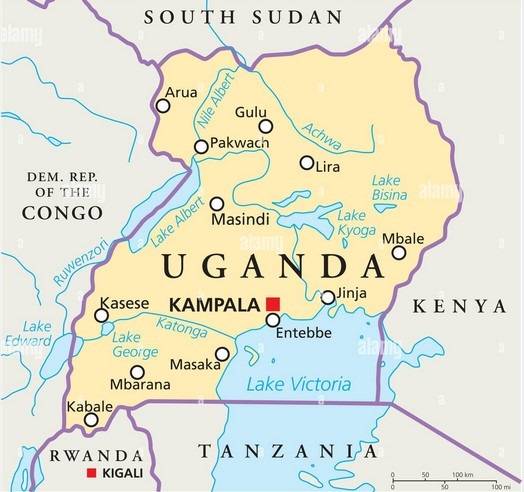
Historic overview
Many African countries have tried to do away with colonialism. But surprisingly to see roads in several parts of Uganda still named in colonial style. The British Empire sent Capt. Frederick Lugard in 1890 to the kingdom of Buganda which spread across the northern shores of Lake Victoria. There were already French and German competing for territory in Eastern Africa. But, Lugard set up a camp with a small army on Old Kampala hill near Mengo which was the capital of Buganda. He quickly persuaded Kabaka Mwanga and eventually Buganda became a British Protectorate in 1894 until 9th October 1962.
People and languages
Now 60 years later, one can still see and feel the impact of the Britsh influence. English is the official language, people drink tea, wear a tie in 90-degree (F) sunshine and drive on the left-hand side of the road. The International religious freedom report 2019 estimate a 82% of Uganda’s population is Christian with 39% Catholic and 32% Anglican.
Nevertheless, the local customs are a reality just with over 50 indigenous groups and 42 languages spoken. Luganda with over 7 million speakers is the common local language and second is swahili.
Local culture is strong and opposes same-sex relations are illegal in Uganda among other 36 African countries. However, western culture is welcome and Ugandans being friendly. They like to talk to the tourists. People drink a lot of alcohol and get happy, eat a lot of food with strong mealtime customs observed at lunch and dinner. This is important for travelers intending to stay longer in Uganda.
There are expats community on social media such as female expats in Kampala and Kampala expats 3.0. The cost of living is very low across the country and food that is expensive in Europe is cheaper here such as grapes and berries.
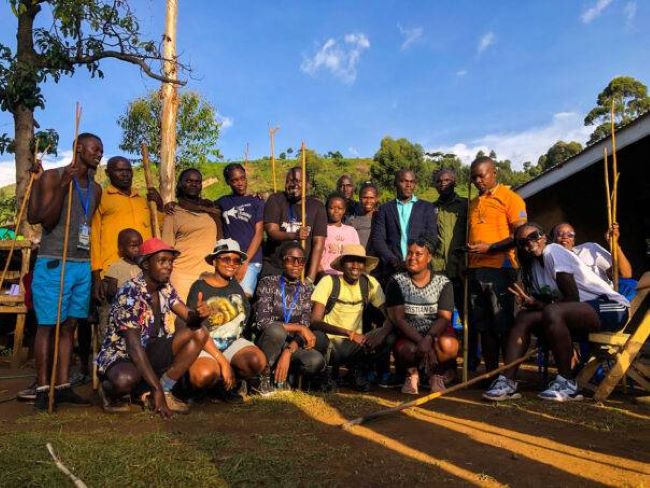
Travel Advice Uganda – Entry regulations
Visa regulations
In general Tourists need a visa. However, the Uganda government policy may determine who enters the country with or without having to apply for one. Check the status of your home country on the official list of visa exempt nations.
The single-entry tourist visa cost is 50 USD per person valid for 90 days. Available for application online via the Ministry of Internal Affairs immigration portal. Now the online system is undergoing maintenance and expect your application might not be successful right away. The alternative way is to get you a reliable agency and apply at no extra cost. Though, some will charge you an additional 20 USD to do so.
Required Vaccinations and Health prevention
A yellow fever certificate is required for all travelers up from 9 month of age. Be aware of Malaria in many parts of Uganda especially Murchison falls, Kidepo, Bwindi and in Kampala capital city. There are several ways to prevent yourself whilst on safari such as taking anti-malaria drugs, seeking medical advice from your doctor, insect repellent and sleeping under a mosquito net.
The Center for Disease Control classifies Uganda as having risk of Hepatitis A and B. Infants of 6 and above for A and all ages for B should prevent themselves.
Drinking Water
In regard to drinking water, stick to mineral bottled and avoid tap water!
We highly recommend a travel insurance for your trip as part of a general travel advice Uganda!
Local currency and payments – Travel Advice Uganda
Local currency
Uganda Shillings abbreviated as (UGX or Ug shs.) is the official currency. Writing /typing the amount the figures must end with this sign as indicated below. Ugandan currency is available in coins of 100/=, 200/=, 500=/ and 1000/=. Paper money comes in 1000/=, 2000/=, 5000/=, 10000/=, 20000/= and 50000/=. Approximate Exchange Rate Uganda shilling (ugx) vs. USD or Euro is: 1 USD equivalent to 3700 ugx, 4000 1 EUR equivalent to 4000 ugx and 1 Pound Sterling equivalent to 4580 ugx.
However, the exchange rates fluctuate with where you do it from and travel seasons – they might be high in banks during summer and vise vasa. Forex bureaus offer better currency exchange rates than Banks. If you change a larger amount of money you may get a better exchange rate. U.S dollar notes older than 2016 aren’t acceptable in Uganda.
Payments
In regard to making payments, cash, credit cards and mobile money are widely acceptable methods. This is especially in banks, hotels, lodges and some supermarkets mainly in large cities such as Entebbe, Kampala and Jinja. In particular, the Uganda Wildlife Authority (UWA) accepts only cashless form of payment such as credit card, mobile money for park entrance fees. You could pay Gorilla permits and other activities either in cash or cashless at the UWA headquarters in Kampala capital city.
Goods and services in retail shops, road side food markets or souvenir shops and community activities such as village walks are mostly paid in cash. For that matter, you’ll need small notes in Uganda shillings for shopping, transport and tipping among other small payments you might make.
Safety deposit small boxes for tourists are available at Diamond Trust Bank (DTB) and Exim Bank in Kampala city. Though, you can get one at Jumia online shop.
Most banks use ATMs and offer foreign currency transaction fees. Citi bank is best for wiring money.
Public Holidays Uganda 2024
- January, 1st, New Years Day
- January, 26th, NRM Liberation Day
- February, 16th, Archbishop Janani Luwum Memorial Day
- March, 8th, International Womens`Day
- March, 29th, Good Friday
- April, 01st, Easter Monday
- April, 09th, Eid al-Fitr
- May, 1st, Labour Day
- June, 3rd, Uganda Martyrs’ Day
- June, 9th, National Heroes’ Day
June, 16th, Eid al-Adha - June, 21st, Fathers´Day
- October, 9th, Independence Day
- December, 25th, Christmas Day
- December, 26th, Boxing Day
Tips on what to wear in Uganda
Another interesting Uganda Travel Advice: Uganda doesn’t have strict dress code and people wear both contemporary and casual clothing. Though, observing the appropriateness of dress and behavior at a given place is essential. In particular, what to bring along in clothes for safari should relate to personal travel experience. Please obey the travel saison and planned activities.
December to February and June to September is Uganda’s dry season. It calls for hot sunshine which you must prepare for as you would for the rainy season – muddy trails and cold nights. Bring what makes you comfortable and to suit your length of stay and places to go.
Electrical Devices, bring along Travel Adaptors
You will need to consider what to pack, to ensure you can use your personal electrical appliances safely whilst abroad. This normally includes the use of a travel adaptor, which is a device that simply allows you to plug any UK electrical appliance into a foreign electrical socket. It is important to note that it does not convert the voltage or frequency.
For Uganda the associated plug type is G, which is the plug that has three rectangular pins in a triangular pattern. Uganda operates on a 240V supply voltage and 50Hz.
Electricity supplies worldwide can vary from anything between 100V and 240V. It can be extremely dangerous to use an electrical appliance that is rated at a voltage different from the supply.
As voltage can differ from country to country, you may need to use a voltage converter or transformer whilst in Uganda. If the frequency is different, the normal operation of an electrical appliance may also be affected. For example, a 50Hz clock may run faster on a 60Hz electricity supply. Most voltage converters and transformers come supplied with plug adaptors, so you may not need to buy a separate travel adaptor.
All converters and transformers will have a maximum power rating (AMPS or WATTS) so make sure that any appliance you intend to use does not exceed this rating. Source: Electrical Safety First, UK
Flight connections to Uganda
Uganda airlines is the national carrier proving flights to Nairobi Kenya, Kilimanjaro Tanzania, Johannesburg south Africa, Zanzibar and United Arab Emirates. It also operates regional flights to Burundi, Mombasa, Dar es Salaam. All international flights to Uganda land at Entebbe airport on the northern shores of Lake Victoria. Those coming to Uganda from overseas, flights to Uganda are available with KLM Royal Dutch, Ethiopian Airlines, Brussels Airlines, RwandAir, Turkish Airlines and Precision Airlines. Visitors from New York City can take advantage of Kenya Airways. There are no direct flights from Europe to Uganda but with Kenya airways, you can fly from Amsterdam, Paris and Frankfurt direct to Entebbe. (as per April 2023)
Airports
Entebbe Intl. Airport is the only main gateway to Uganda and you don’t fly to Kampala. The airport is located in Entebbe town about 37 sq.km (1-hour drive) from Kampala capital city.
There are domestic airstrips in most national parks for those intending to do flying in safaris using light charter air crafts. These include Kajjansi in Kampala, Pakuba in Murchison Falls, Apoka in Kidepo Valley, Kihihi and Kisoro airstrips for Bwindi Impenetrable Forest National Park.
Domestic airlines are available. You may use Eagle Air, Aero Link which operate daily scheduled flights across the country. In addition, helicopter services are available for special interest travelers.
Uganda Travel Climate
Our Travel Advice Uganda would not be complete without the weather conditions you could expect. Uganda is located across the equator and has a tropical climate with the dry and wet seasons. There is sunshine all year round. The best time to visit Uganda is the dry season from June to September and December to February. During this time, the average temperature is around 18 – 23 degrees Celsius in the central around Entebbe and Kampala city on the northern shores of Lake Victoria and 29 to 34 degrees Celsius in the northern parks like Murchison Falls and Kidepo Valley National Parks.
In the tropical forests such as Bwindi Impenetrable Forest in south-western Uganda, temperatures drop to 11 degrees Celsius at night but there’s high humidity up to 78%.
On the other hand, the wet season occurs in April to May and October to November in the central and western regions. However, in the north-east Karamoja region which is semi-desert, the rain season occurs in March and October only.
Food, what’s on the table
Uganda`s staple food is named Matooke (banana plantains) served mainly during lunch and dinner. But you’ll find several traditional foods such as sweet and Irish potatoes, cassava, rice and posho (Ugali in Swahili). Served with a variety of sauces such as beans, ground nuts, cowpeas, beef and chicken stews as well as fish Besides. Local food is always accompanied by starters and desserts or mixed with vegetables like dark leafy greens, carrots, egg plants among others.
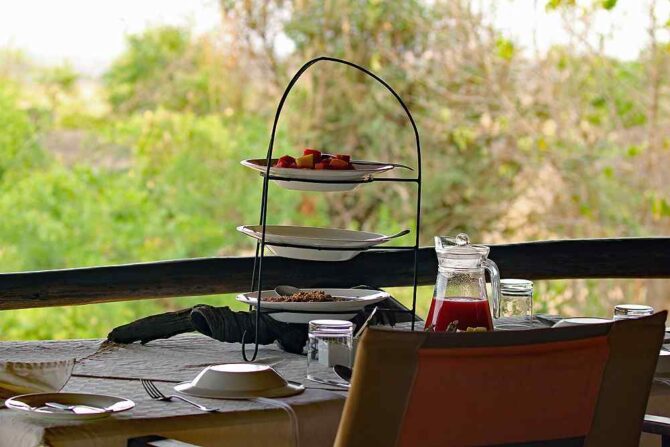
Besides the traditional food, continental dishes such as English, German, French, Spanish, Italian, Chinese and Mediterranean is served. Mainly at hotels, cafes, restaurants and lodges. Furthermore, street foods in Uganda have become popular. Served on roadside markets, and also in restaurants such as Rolex, Kikomando and roasted meat and roasted matooke (Gonja). Yellow bananas are also common along the roadside markets and taste sweet and are good to eat before or after food.
Safety
The country went through political difficulties in the 1970s and 80s and has remained stable since. A few incidences occurred in 1999 when US tourists were killed and the early 2000 Lord’s Resistance Army insurgency in northern Uganda. most recently was the kidnap of US female tourist and his guide in Ishasha famous for its tree climbing lions near the border with DR Congo in 2019. The two were rescued on ransom and nobody was hurt. The Uganda government increased security and pushed all forms of insecurity out its borders.
The Uganda Wildlife rangers in particular keep all parks secure through daily monitoring. And there are army camps in parks such as Bwindi. All corners of Uganda are now safe and secure and travelers can undertake self-drive safari and backpacking across the country.
Though tourists are less likely to be targeted by violent criminals, it’s important to avoid isolation and minimize traveling alone at night. This is because of minor theft, robbery that might occur on streets and corridors in Kampala capital city. Therefore, take precautions, keep your valuables away and avoid scams that might disguise themselves as helpful.
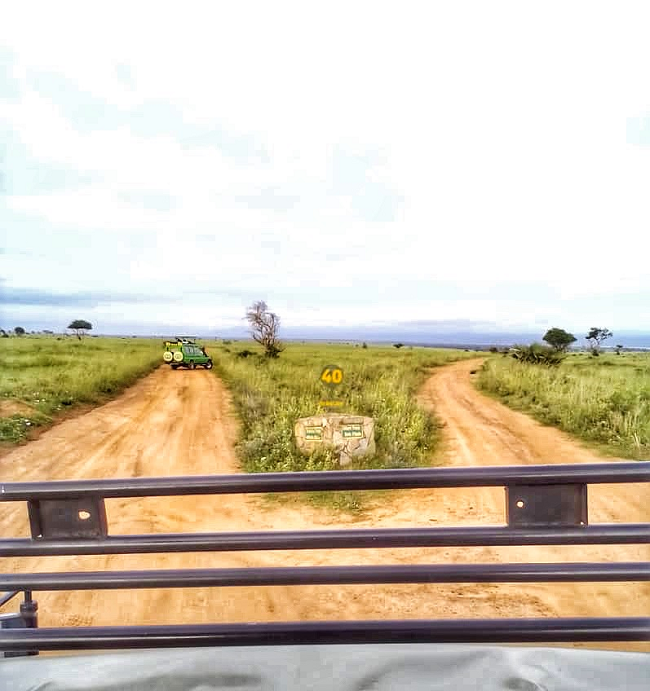
Travel Advice Uganda – getting around on your own
The best way to get around Uganda is by car, buses and taxis are the most used form of public transportation. Traffic jam is high in Kampala during morning and evening hours. Buses are found mainly in Kampala city and link to Kigali and Nairobi. They have fixed stops thus requiring further means to reach the national parks.
You have to consider extra means of accessing the parks when traveling by bus. Likely, hire a car or motorcycle ride from the bus station. The Guided safaris use tourist vehicles which are 4-wheel drive to handle rough terrain within the national parks. They have pop up roof which is good for conducting game drives.
At Entebbe airport, you’ll find taxis for hire to take you to the hotel. In Kampala city, there are motorcycles locally known as boda-boda which is the best way to beat traffic and get around the city quickly. You can use smartphone apps like Safe Boda and Bolt to order a ride and its more convenient and safer than getting a random ride on the streets.
The main highways are tarmacked from Kampala to major towns up country. But be aware of steep slope driving and potholes in upcountry red dirt roads such as Ishasha – Bwindi route.
For instance, the Kampala-Masaka-Mbarara high leads to Bwindi in southwestern Uganda. This road has got a lot of heavy truck trailers transiting and caution must be exercised whilst driving. The Kampala-Gulu highway takes you to Murchison Falls and further continues to Kidepo Valley. The Kampala-Fort Portal road leads you to Kibale Forest, Queen Elizabeth and Rwenzori Mountains National Park.
However, we recommend to use an Ugandan Tour Operator to organize your overland tours!
For any open questions just contact us


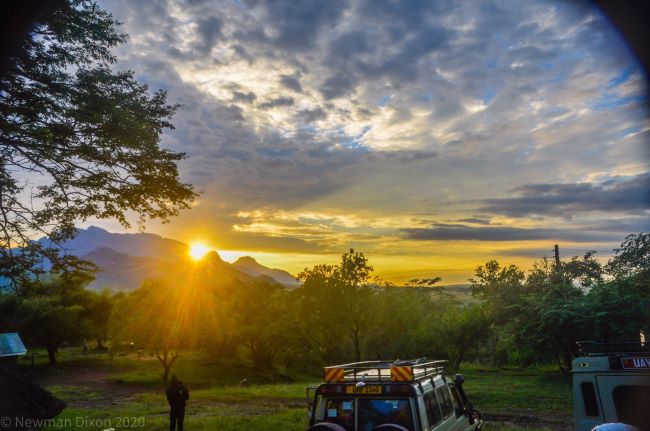
 Uganda Safari Travel Guide Advert
Uganda Safari Travel Guide Advert


